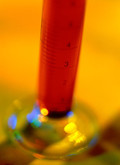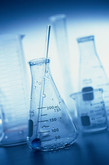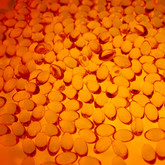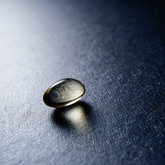Biosimilars/General
US Supreme Court looks set to challenge Affordable Care Act
The United States Supreme Court is reviewing the constitutionality of the provision in the Affordable Care Act providing that individuals should take personal responsibility for paying for their health care by obtaining health insurance or pay a fine. The move could mean that the Supreme Court rejects the whole healthcare law, including the biosimilars pathway created by the healthcare reform.
Biosimilars approved and marketed in The Netherlands
Last updated: 1 June 2012
The Dutch Medicines Evaluation Board (MEB) – College ter Beoordeling van Geneesmiddelen (CBG) – is responsible for the approval of marketing authorisation of medicinal products including biosimilars in The Netherlands.
FDA’s public hearing on biosimilars draft guidances
On 11 May 2012, FDA held a public hearing to gain input on their draft guidances relating to the development of biosimilar products and it seems that the guidances were generally well accepted.
Biosimilars approved and marketed in Belgium
Last updated: 18 May 2012
The Federal Agency for Medicines and Health Products (FAMHP), formerly the Directorate-General for Medicinal Products of the Federal Public Service (FPS) Public Health, created in January 2007, is the official authority for medicines and health products in Belgium and is also responsible for authorising biosimilars in Belgium [1]. This is carried out via the EU procedures (centralised, national, mutual recognition or decentralised) and following EMA guidelines for biosimilars.
Also noted on biosimilars: 11 May 2012
Sandoz testimony at FDA hearing on biosimilars will emphasise need for consistent regulatory standards across all biologicals
Sandoz announced on 9 May 2012 that Dr Mark McCamish, Head of Global Biopharmaceutical Development, would present on behalf of the Novartis Group of companies (Novartis) at the 11 May 2012 FDA public hearing on draft guidances for biosimilars.
The message he will convey will focus on the need for a single science-based regulatory standard that FDA should apply across all biologicals, irrespective of the business model of the sponsor. As well as a single standard, Dr McCamish will address the points that biosimilar clinical studies should be only confirmatory and the fact that interchangeability is critical to maximising access to affordable biosimilars for US patients.
Source: Sandoz
Also noted on biosimilars: 13 April 2012
Palivizumab biosimilar successfully produced in plants
Biotechnology company iBio, self-professed leader in the plant-made pharmaceutical field, announced on 10 April 2012 that it had successfully used its iBioLaunch technology to produce biosimilar palivizumab in non-transgenic green plants.
This is the second monoclonal antibody that the company has successfully produced. Back in October 2011 the company announced the successful use of its technology to produce rituximab.
Related article
Rituximab biosimilar successfully produced in plants
Source: iBio
Also noted on biosimilars: 6 April 2012
Amgen and AstraZeneca make monoclonal antibody deal
Biotech giant Amgen and pharma major AstraZeneca announced on 2 April 2012 an agreement to jointly develop and commercialise five monoclonal antibodies from Amgen’s clinical inflammation portfolio (AMG 139, AMG 157, AMG 181, AMG 557 and brodalumab [AMG 827]), which are expected to be used to treat inflammatory diseases.
As part of the deal AstraZeneca will make an upfront payment of US$50 million and the companies will then share both costs and profits. The collaboration will provide Amgen with additional resources to optimally progress its portfolio and Amgen will benefit from the strong respiratory, inflammation and asthma development expertise of MedImmune–AstraZeneca’s biologicals arm.
Related articles
Amgen finally jumps on biosimilars bandwagon
AstraZeneca expands its generics business with Indian agreements
Source: Amgen, AstraZeneca
BIO and GPhA support biosimilar and generic user fees
Both the Biotechnology Industry Organization (BIO) and the Generic Pharmaceutical Association (GPhA) have expressed their support of user fees for biosimilars and generics.
Biosimilars will not be able to use ANDA pathway to approval
FDA’s highly anticipated guidance for biosimilars finally arrived on 10 February 2012 with the release of three draft guidance documents [1]. Some have complained that the guidance is too vague, however, FDA’s denial of three citizen’s petitions have perhaps made some issues clearer.
FDA announces public hearing on biosimilars’ guidelines
FDA has announced a one-day public hearing to be held on 11 May 2012, in Silver Spring, Maryland, USA. During the meeting FDA hopes ‘to obtain input on recently issued draft guidelines relating to the development of biosimilar products.’










